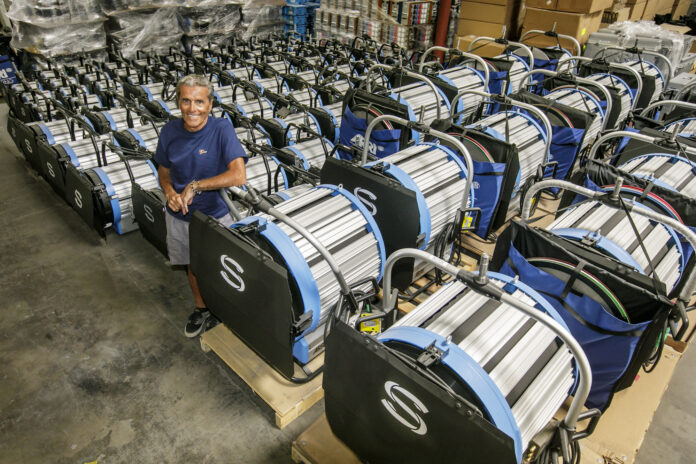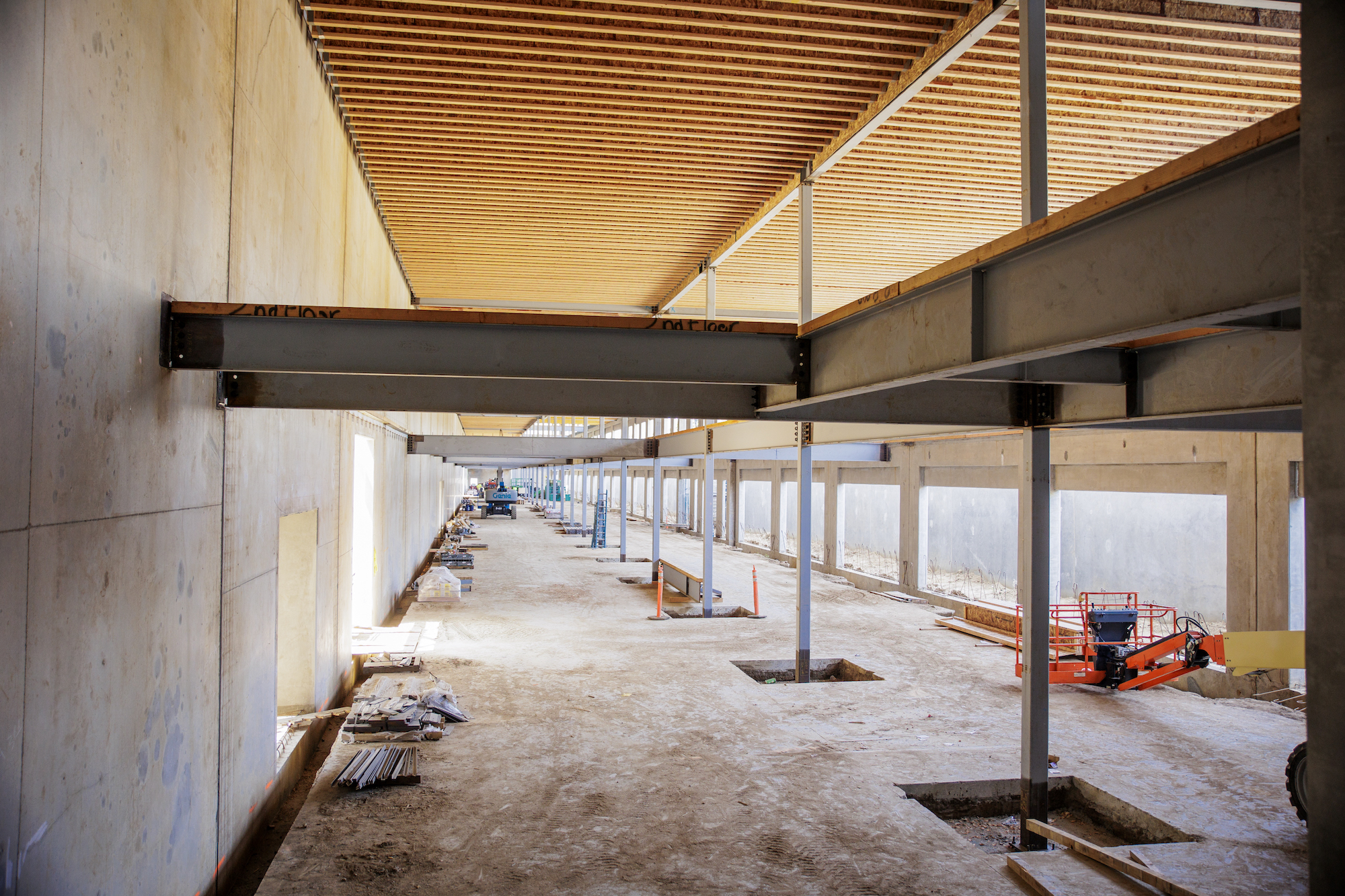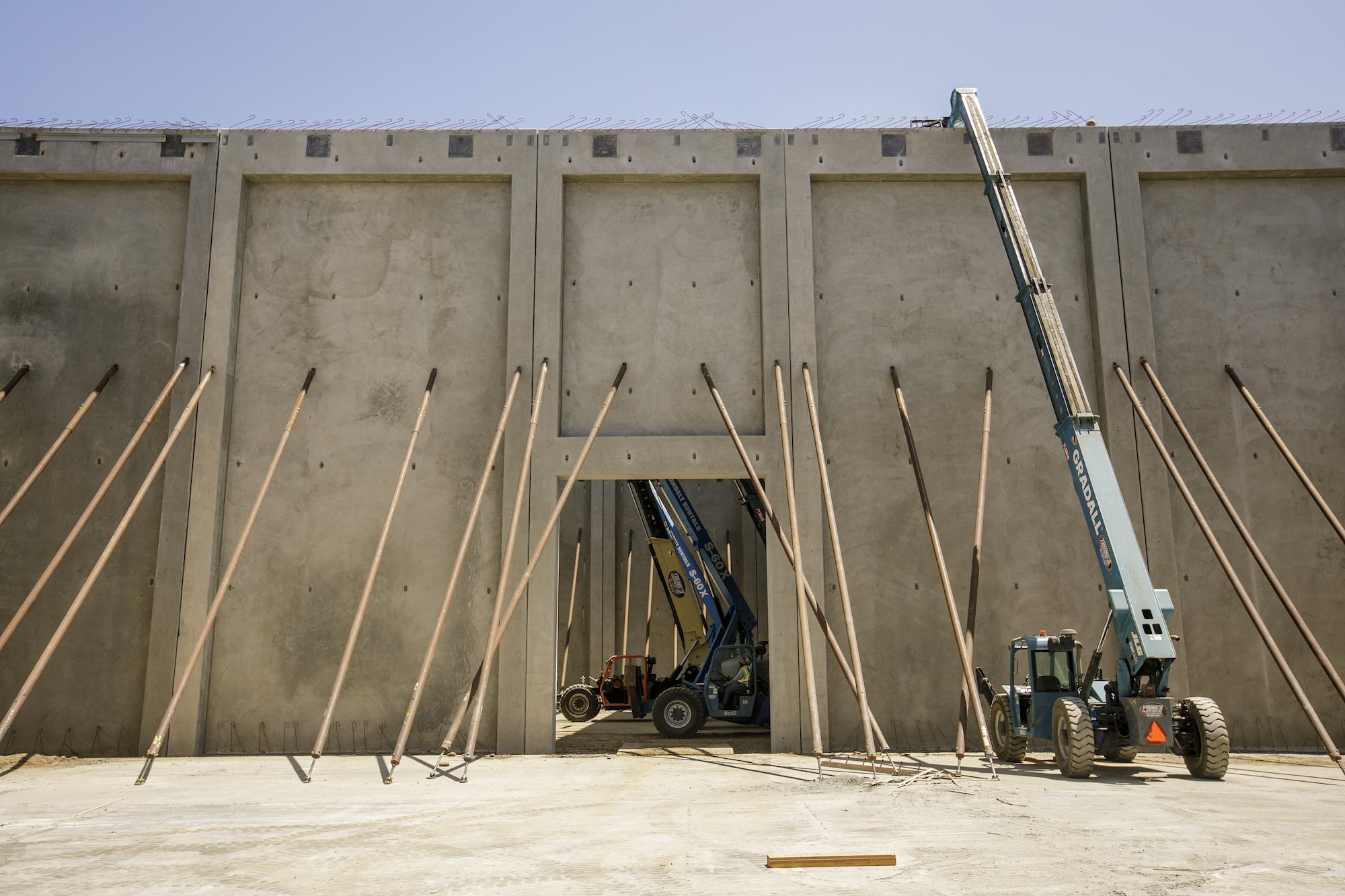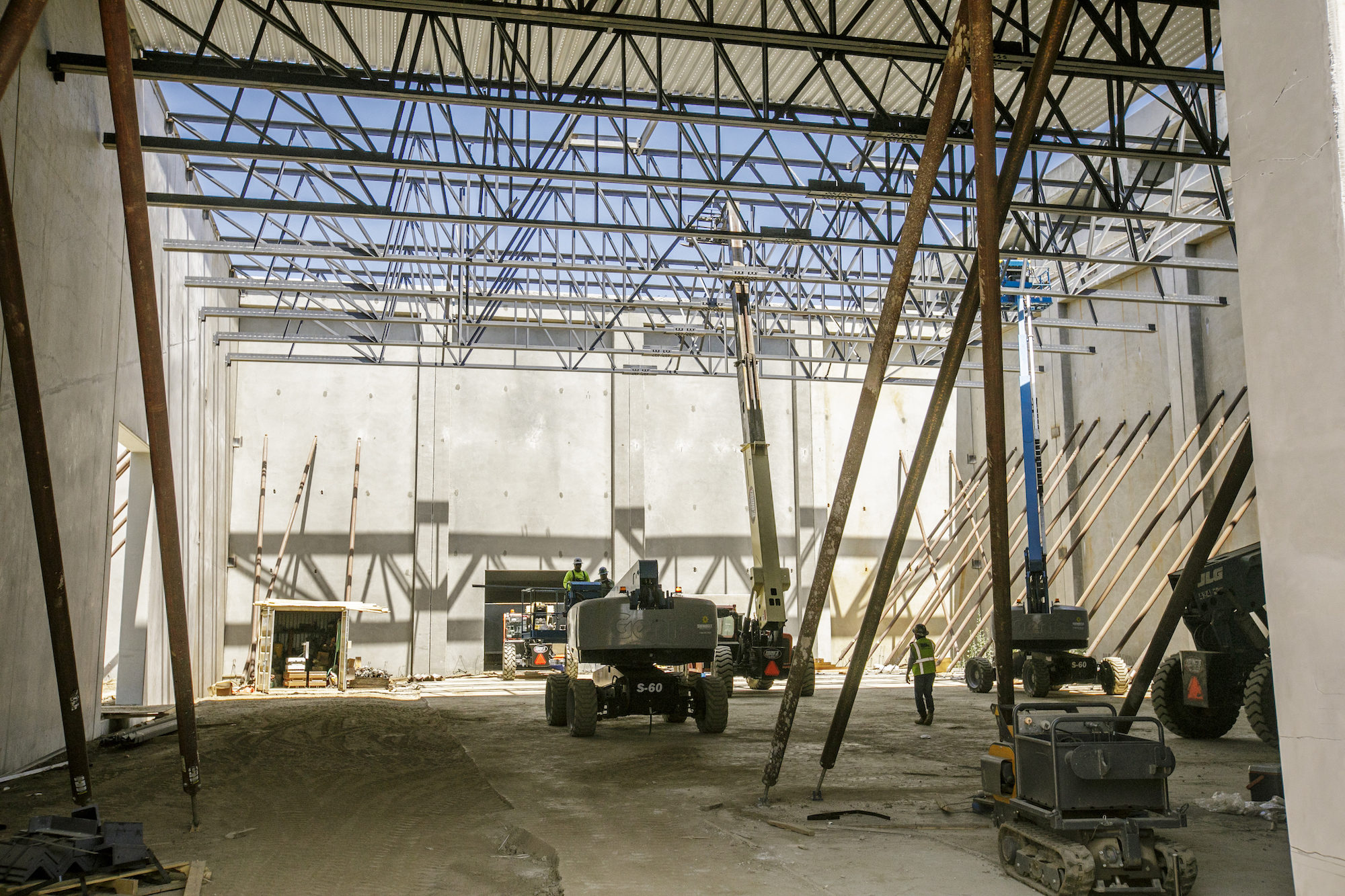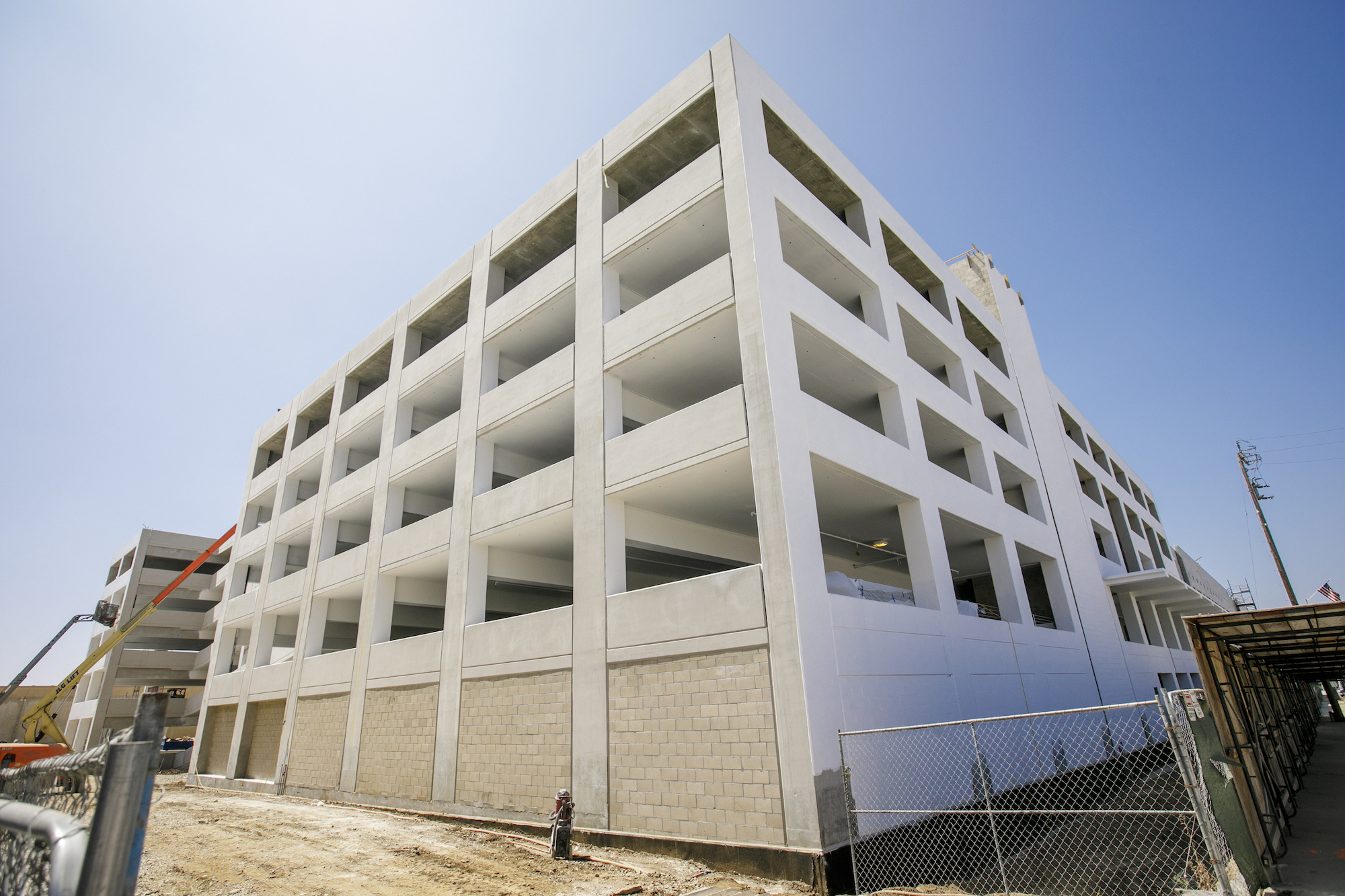In an effort to take advantage of the high demand for soundstages, Tony Guanci decided to pivot a number of industrial holdings in Sylmar to studio spaces.
“Covid triggered so many changes in the way we watch content,” Guanci, the chief executive of the planned Sylmar Studios, said. “So we pivoted away from what we typically do to stages.”
“The core company is a major industrial developer. We had these properties for logistics, but during Covid we saw the influx of streaming and production demand,” Guanci added.
Once completed, Sylmar Studios will be a 27-acre, $500 million project with soundstages, 120,000 square feet of office space with post-production capabilities, parking, a cafe, a rental facility and more. The first stage, scheduled to be completed next year, will include a handful of studios and office space.
The sites sit on an Opportunity Zone, which Guanci called an “added benefit.”
Sylmar Studios will also have a lighting and grip businesses, which entities filming at the center will use.
Patrick Dempsey, Sylmar Studios’ president and general manager, said rentals will amount to roughly 40% of other revenues combined.
Dempsey, a veteran studio executive whose local experience includes working at the Culver City-based Hackman Capital Partners’ Culver Studios, said he expected the new studio to be in high demand because of a low studio vacancy rate and because there has not been a large, new-build project like this in decades. Many have been proposed in areas such as downtown, but have not yet opened.
“These are world-class, purpose-built studios. A lot of what is in L.A. right now is converted warehouses,” he said.
Big plans
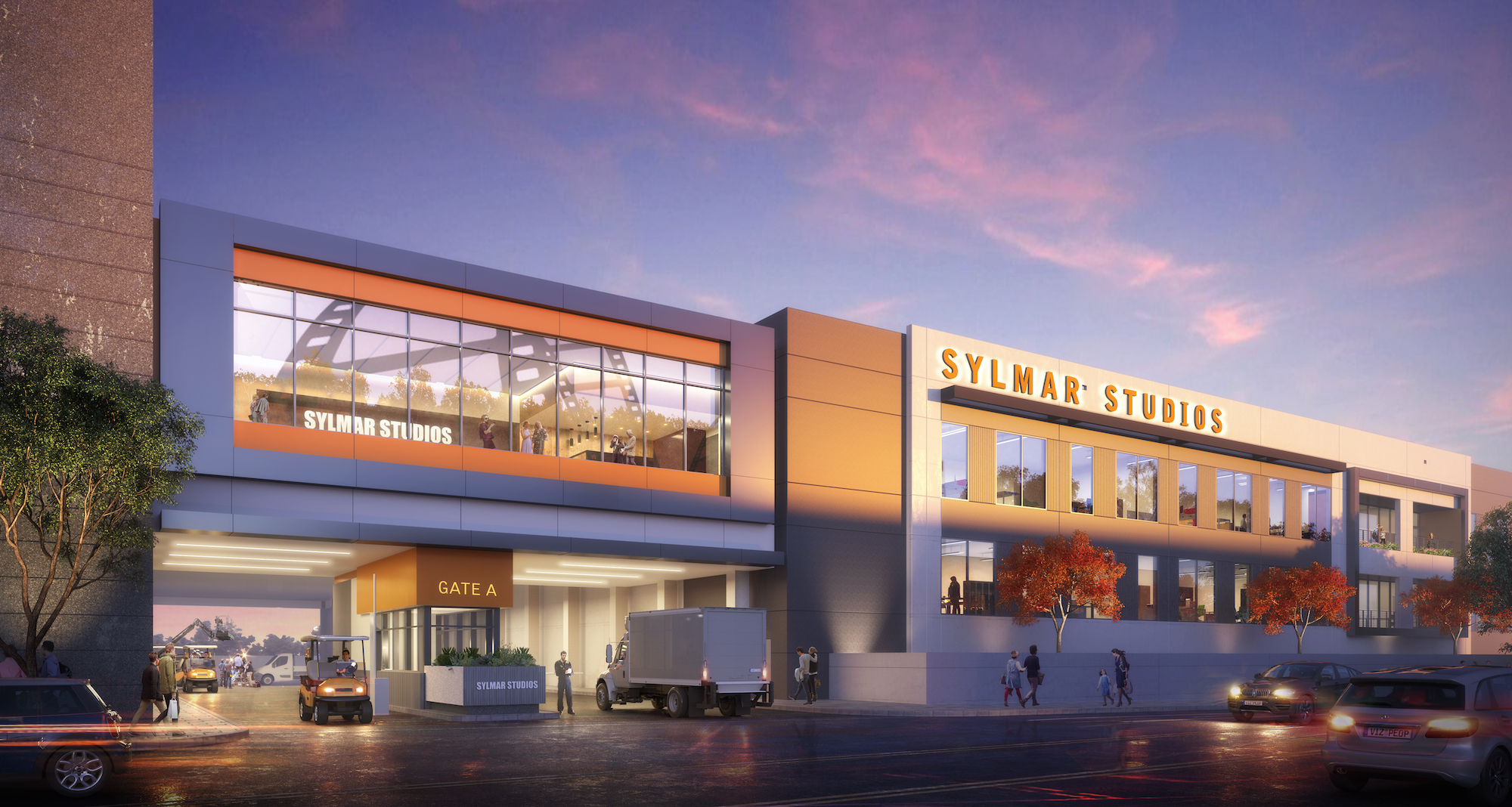
The project broke ground last year and will be completed in stages starting next summer.
And while pre-Covid streaming giants like Netflix Inc. and Amazon.com Inc. were signing long-term leases for large amounts of space, Sylmar Studios is not expecting one long-term tenant but rather many productions and companies, as many as three at a time.
“It’s first-come, first-serve. We are targeting world-class, legit productions,” Dempsey said. “We are not looking for an anchor tenant.”
Carl Muhlstein, an executive managing director at Jones Lang LaSalle Inc., said most companies were moving away from large, long-term leases and he instead was seeing “a return of season-by-season utilization” of stages.
He added that this gives landlords more pricing power over their assets while preventing tenants from having to pay for downtime.
“The former long-term leases were helpful to control stages and for developers to secure financing but are becoming a thing of the past except for very specialized situations,” Muhlstein said.
Guanci added that Sylmar Studios’ light and grip business would be a “big money source,” so having one long-term tenant could be a disadvantage if they were not making use of the rentals. He added that a long-term tenant taking many stages would have to agree to use the equipment and not keep any stages empty to be considered for a lease.
Dempsey said the project has already seen a lot of interest due to its location near where people in the business live and other studios.
One of his current priorities is building up the management team for the property.
Soundstage demand
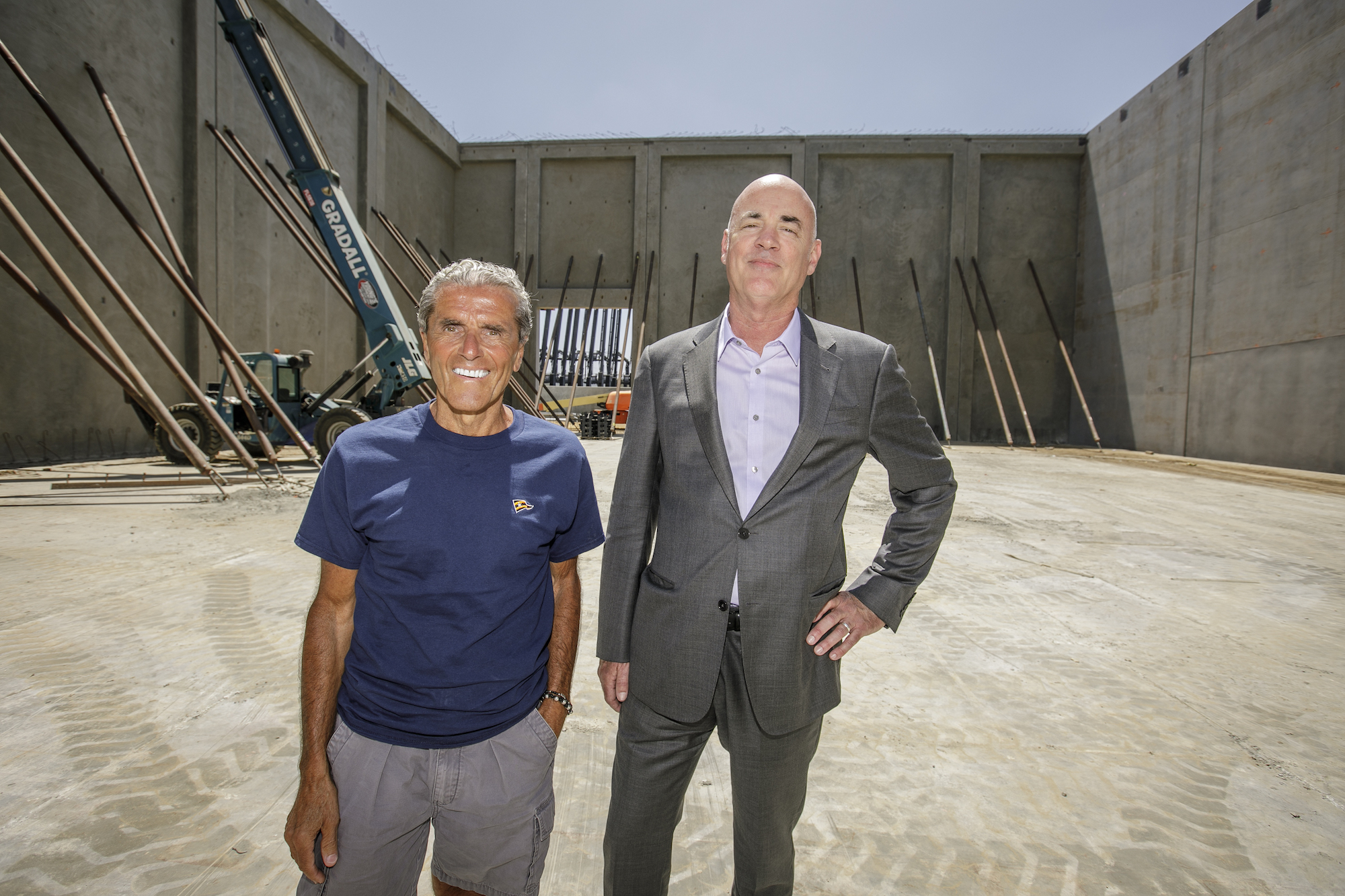
Prior to the pandemic, studio occupancy levels were more than 90%, according to Film LA.
While that number dropped a bit when Covid halted productions, it has since ticked upward as backlogged projects resumed filming.
Sonnet Hui, a vice president and general manager of Project Management Advisors, said studios were close to 100% occupied coming out of the pandemic.
“They are in high demand because people are looking for content and content creation and entertainment,” she said.
And despite recent adaptive reuse stage projects and studio expansions, there is still demand for the asset type, experts agree.
“There’s still tremendous constraint of supply. We are not fearful of oversupply like some other national markets,” Muhlstein said. “We have no land and entitlements and approvals are complicated, and right now construction costs of these urban, infill studios and proposed studios are very difficult to finance.”
There has been a flurry of announcements for soundstages in recent years to fill that demand, but Muhlstein cautioned that not all of those projects would actually come to fruition.
“Real estate always has a lot of announcements,” he said. “Not everyone will be completed. It’s hard to say which will.”
For stages that are already under construction, though, Muhlstein expects to see a “utilization spurt.”
“There’s a lot of shows that have been greenlit or approved to go and are starting to bunch up. We think everyone is going to be really busy. This is an industry that knows how to react,” he said.
High interest rates and construction costs, experts agree, make projects that are not already far along difficult in some cases to get started.
“The lenders are not lending, or if they are the requirements are really, really high and kind of stringent,” Hui said. “Until the interest rates are settled, some of the projects may be pushed out, but developers are still committed but putting the brake on certain projects unless they have financing lined up.”
Muhlstein added that finding the amount of land required for these projects also makes them difficult to do.
“There’s a great amount of interest in studios as an alternative investment,” he said. “Some companies are moving away from office and multifamily even to find alternative investments because they get better yields. The big studio operators have had no problem raising capital, even at this time.”
Strikes
A big question for some may be the writers’ strike.
But industry analysts and the people behind Sylmar Studios said the strike would only increase the demand for studio spaces.
“When they reach an agreement there will be a frenzy to get back to work and create content,” Hui said.
Guanci said the work action was “benefitting us.”
“The pent-up demand for stages will be off the charts,” he said, adding that Sylmar Studios would open at a time when studios needed to film quickly.
Contracts, he said, would also be renegotiated for a while, so there would be a lot of certainty at that point.
Beyond Sylmar Studios, Guanci is working on bringing studios to Nashville and Louisville and looking at other markets as well.
“We like the sector … it just makes sense for us to be in this space,” he said.
